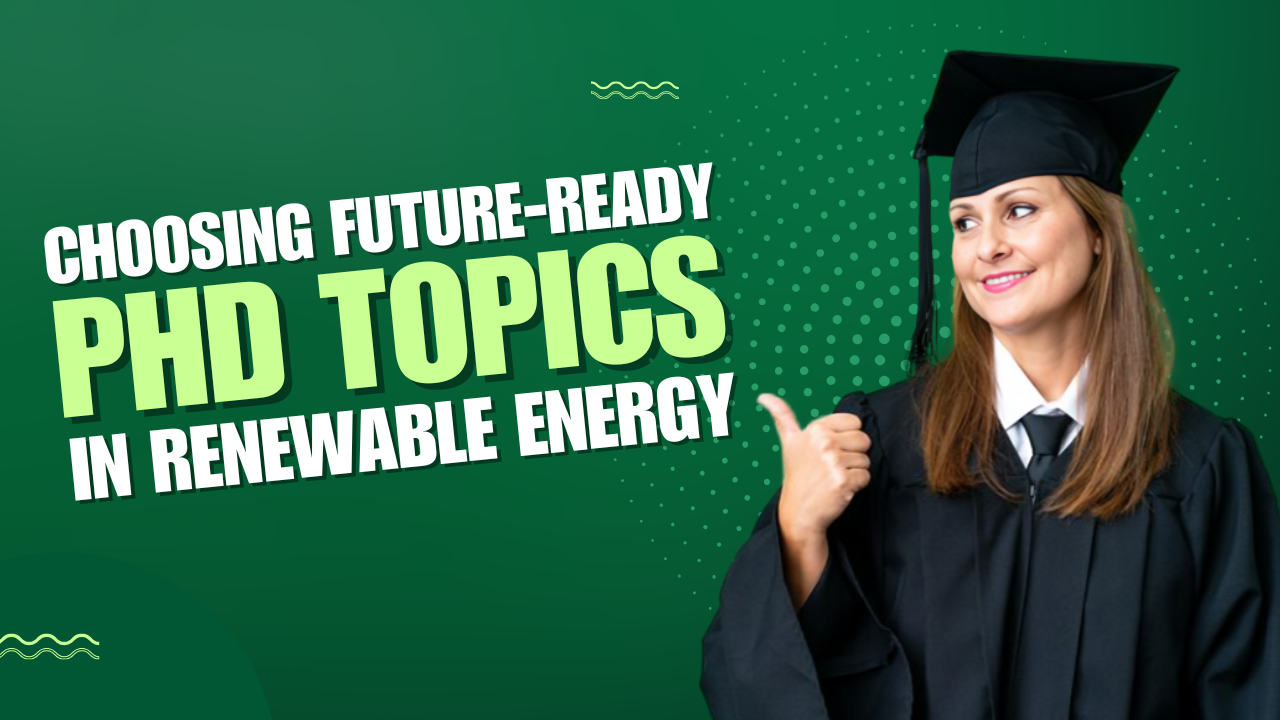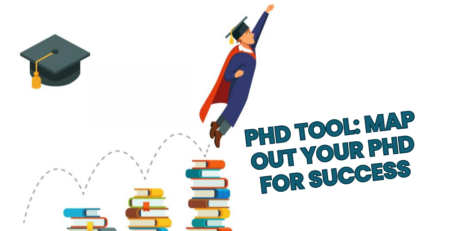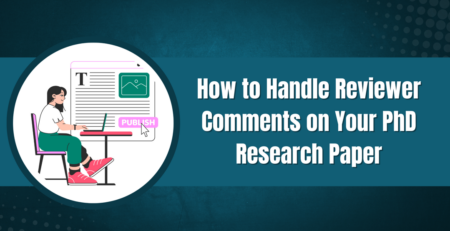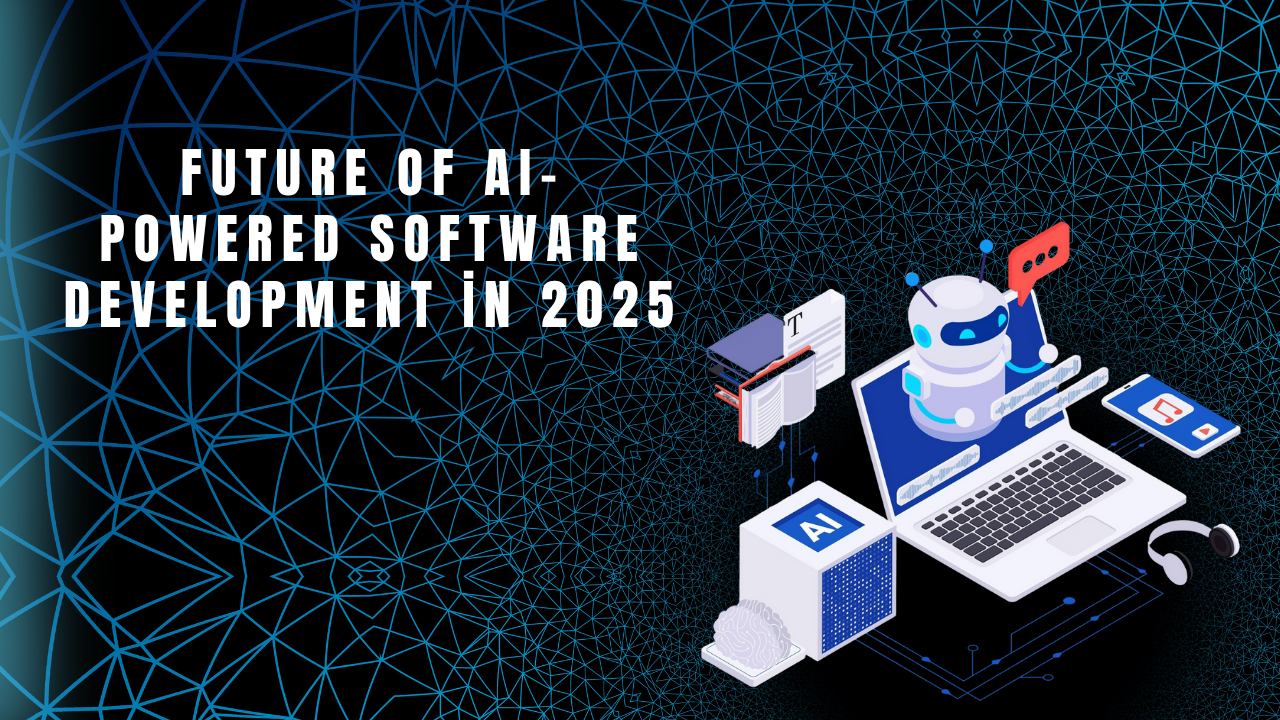How PhD Scholars Can Select Future-Ready Topics in Renewable Energy?
Kenfra Research - Bavithra2025-10-31T14:36:10+05:30Choosing a PhD topic is one of the most important decisions in a research scholar’s academic journey. When it comes to renewable energy, the challenge is not the lack of topics—but finding one that is future-ready, impactful, and researchable. The renewable energy sector is evolving quickly, driven by technology, policy changes, and global sustainability goals.
In this blog, we’ll explore how PhD scholars can select future-ready topics in renewable energy, what factors to consider, and some promising areas for upcoming research.
Smart Ways to Choose Future-Ready Renewable Energy Topics
1. Understanding the Meaning of a Future-Ready Research Topic
Before selecting a topic, it’s essential to understand what future-ready really means.
A future-ready PhD topic in renewable energy:
- Focuses on emerging technologies or challenges that will shape the next 10–20 years.
- Has practical applications in the global energy transition.
- Can lead to new patents, startups, or innovative solutions.
- Aligns with Sustainable Development Goals (SDG 7 – Affordable and Clean Energy).
So, rather than choosing a traditional topic like “Solar panel efficiency,” think ahead — for example, “AI-driven optimization of solar farm performance using predictive analytics.”
2. Analyze Global and Local Energy Trends
To select a relevant research area, start by analyzing global renewable energy trends. Some of the fastest-growing segments include:
- Green hydrogen production and storage
- Offshore wind and floating solar systems
- Battery recycling and energy storage innovation
- Smart grids and energy digitalization
- Bioenergy and waste-to-energy technologies
- Carbon capture, utilization, and storage (CCUS)
PhD scholars should also explore regional energy policies and national research priorities. For example:
- India and China are investing heavily in solar and hydrogen.
- The European Union is focusing on carbon neutrality and smart grids.
- The U.S. is funding energy storage and grid resilience research.
By aligning your topic with these priorities, your research gains more relevance, funding potential, and real-world impact.
3. Use Technology Foresight and Data Analytics
Technology foresight helps identify future directions in science and engineering. Scholars can use scientific databases and AI tools to analyze:
- Most-cited papers in renewable energy
- Emerging keywords in journals
- Patent databases showing new inventions
- Government and corporate R&D reports
Some useful platforms include:
- Scopus and Web of Science (for citation trends)
- Google Scholar (for topic growth)
- International Energy Agency (IEA) reports (for policy and forecast data)
- WIPO and Google Patents (for innovation insights)
By studying where research is heading, you can identify gaps and future-ready niches for your PhD.
4. Evaluate Research Feasibility
Even if a topic sounds futuristic, it must be feasible for PhD research. Ask yourself:
- Do I have access to labs, data, or simulation tools?
- Can I collaborate with industry or universities working on this technology?
- Are there enough academic papers and data to build a literature review?
A balanced PhD topic is one that is innovative yet achievable within the available resources and timeframe.
5. Align with Sustainability and Industry 5.0
The next generation of research is moving toward Sustainability and Industry 5.0, where human intelligence, automation, and green innovation come together.
PhD scholars can explore how renewable energy integrates with:
- Artificial Intelligence (AI)
- Internet of Things (IoT)
- Blockchain for energy trading
- Smart manufacturing
- Circular economy
For example:
- “AI-based fault detection in wind turbines using IoT sensors”
- “Blockchain-enabled peer-to-peer solar energy trading”
- “Circular economy models for battery waste management”
Such topics are not only future-ready but also career-ready, opening doors to research, innovation, and entrepreneurship.
6. Focus on Interdisciplinary Research
Renewable energy is no longer a single-discipline field. Scholars from mechanical, electrical, chemical, and environmental engineering can work together to solve global energy challenges.
Some interdisciplinary topic examples:
- Energy policy + AI: Predictive modeling for renewable energy adoption.
- Mechanical + Materials Science: New nanomaterials for energy storage.
- Environmental + Economics: Life cycle assessment of solar or biofuel projects.
- Computer Science + Power Systems: Digital twins for smart grid optimization.
Interdisciplinary research not only strengthens your PhD but also increases your chances of publication in high-impact journals.
7. Collaborate with Industry and Research Institutions
Future-ready research often involves real-world collaboration. Partnering with industries, renewable energy startups, or government projects can help:
- Gain access to funding and data
- Validate your findings in real applications
- Enhance your career opportunities
You can reach out to:
- National Renewable Energy Laboratories (NREL)
- International Renewable Energy Agency (IRENA)
- Private companies working in solar, wind, or hydrogen sectors
- University research centers with joint programs
Collaborative research ensures that your PhD work remains relevant and practical beyond the academic world.
8. Identify Research Gaps from Literature Review
A detailed literature review helps uncover what has already been done—and what’s missing. Use it to identify research gaps such as:
- Underexplored regions (e.g., wind energy in tropical zones)
- New materials (e.g., perovskite solar cells)
- Integration challenges (e.g., grid stability with renewables)
- Policy or economic barriers (e.g., renewable energy financing models)
A gap-driven topic is more likely to contribute original knowledge to the field and attract interest from journals and funding agencies.
9. Examples of Future-Ready PhD Topics in Renewable Energy
Here are some examples of emerging and impactful PhD research topics:
Solar Energy
- AI-based forecasting of solar energy generation
- Perovskite solar cell degradation and recycling
- Floating solar farms for water conservation and power generation
Wind Energy
- Offshore wind energy integration with hybrid storage systems
- Smart maintenance using drone and sensor technologies
- Aerodynamic optimization of wind turbine blades using machine learning
Bioenergy
- Microalgae-based biofuel optimization
- Waste-to-energy technologies for urban sustainability
- Biogas purification and upgrading for hydrogen production
Energy Storage
- Solid-state battery materials and safety improvement
- Second-life applications for EV batteries
- Hybrid renewable systems with advanced storage models
Hydrogen and Fuel Cells
- Green hydrogen production via photocatalysis
- Hydrogen infrastructure and safety modeling
- Fuel cell efficiency improvement using nanomaterials
Smart Grids and Digital Energy
- Blockchain in renewable energy trading
- AI-driven energy management in smart cities
- Cybersecurity in smart grid operations
These topics are innovative, sustainable, and aligned with global energy goals.
10. Future-Proof Your Research with Continuous Learning
Finally, remember that renewable energy is a fast-moving field. To keep your PhD research future-ready:
- Follow top journals like Renewable Energy, Applied Energy, and Energy Conversion and Management.
- Attend conferences such as IEEE PES, World Energy Congress, and CleanTech Forums.
- Take online courses in AI, data analytics, and sustainability to expand your skillset.
Continuous learning ensures that your research stays relevant even as technologies evolve.
Conclusion
Selecting a future-ready PhD topic in renewable energy is about more than just choosing a trending area—it’s about identifying where science meets sustainability. By analyzing global trends, using data-driven foresight, collaborating across disciplines, and aligning with real-world needs, PhD scholars can contribute meaningfully to a cleaner and smarter energy future.
At Kenfra Research, we believe the key is to stay curious, adaptable, and visionary—because the renewable energy revolution needs innovators who can think ahead.












Leave a Reply